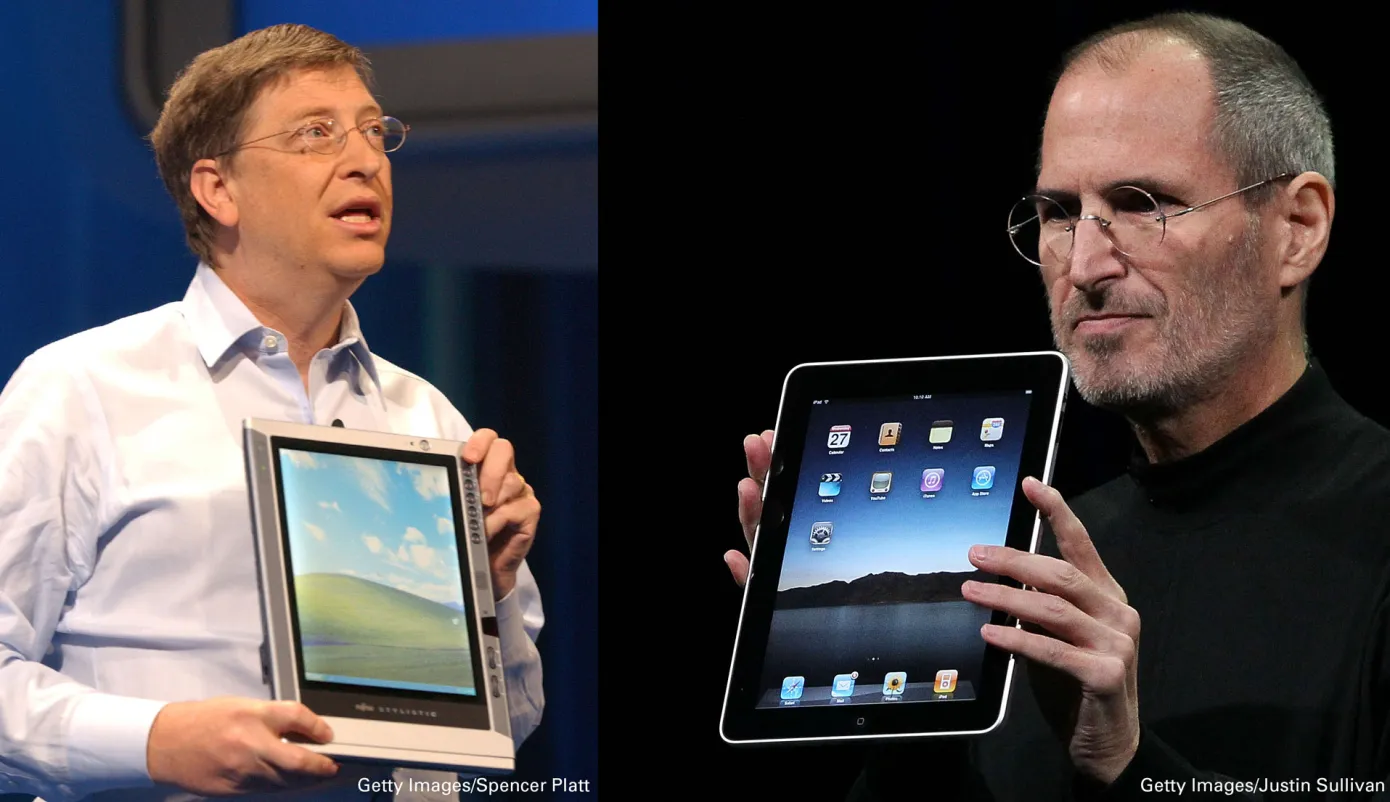The U.S. Department of Justice plus attorneys general from 16 states and the District of Columbia sued Apple for antitrust this morning in federal court. The suit alleges that the company has a monopoly in the premium smartphone market and uses a variety of illegal tactics to perpetuate that monopoly.
Leaving aside the details of those tactics and their legality (if you’re interested, you can read the entire lawsuit here) the case has a lot of parallels to the DOJ’s antitrust suit against Microsoft in the 1990s, which I covered at Directions on Microsoft from 2000 through 2010. Even Attorney General Merrick Garland noted those parallels, saying, “The landmark Microsoft case held a monopolist liable under the antitrust laws for leveraging its market position to undermine technologies that would have made it easier for users to choose different computer operating systems. Today’s complaint alleges that Apple has engaged in many of the same tactics that Microsoft used.”
But there’s one critical difference between the cases: Microsoft had a clear monopoly over the relevant market of operating systems for personal computers. Apple’s monopoly position is not nearly as clear-cut.
It’s not illegal to have a monopoly, as Garland also noted in his press conference. It is, however, illegal to use certain tactics to perpetuate or maintain that monopoly — but to prove that, you have to prove the defendant has sufficient market power to foreclose competitors.
Microsoft Windows had well over 90% market share in the relevant market of operating systems for personal computers. It was so dominant in the pre-smartphone age, in fact, that one Goldman Sachs estimate reportedly had Microsoft operating systems on 97% of all computing devices in 2000.
Although the actual outcome of the Microsoft antitrust case could be described as a mixed victory for the DOJ, with a lot of the penalties — including the dissolution of Microsoft into two companies — thrown out on appeal, the findings of fact in that case
were significant in shaping antitrust law and establishing precedents for future cases. The outcome of the Apple antitrust case will likely depend on various factors, including the definition of the relevant market, Apple’s market share within that market, and the evidence presented regarding its alleged anticompetitive conduct.










